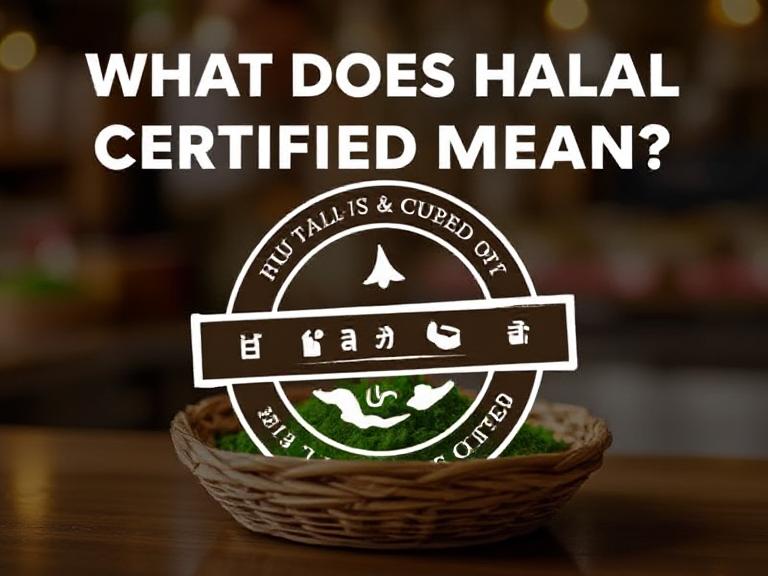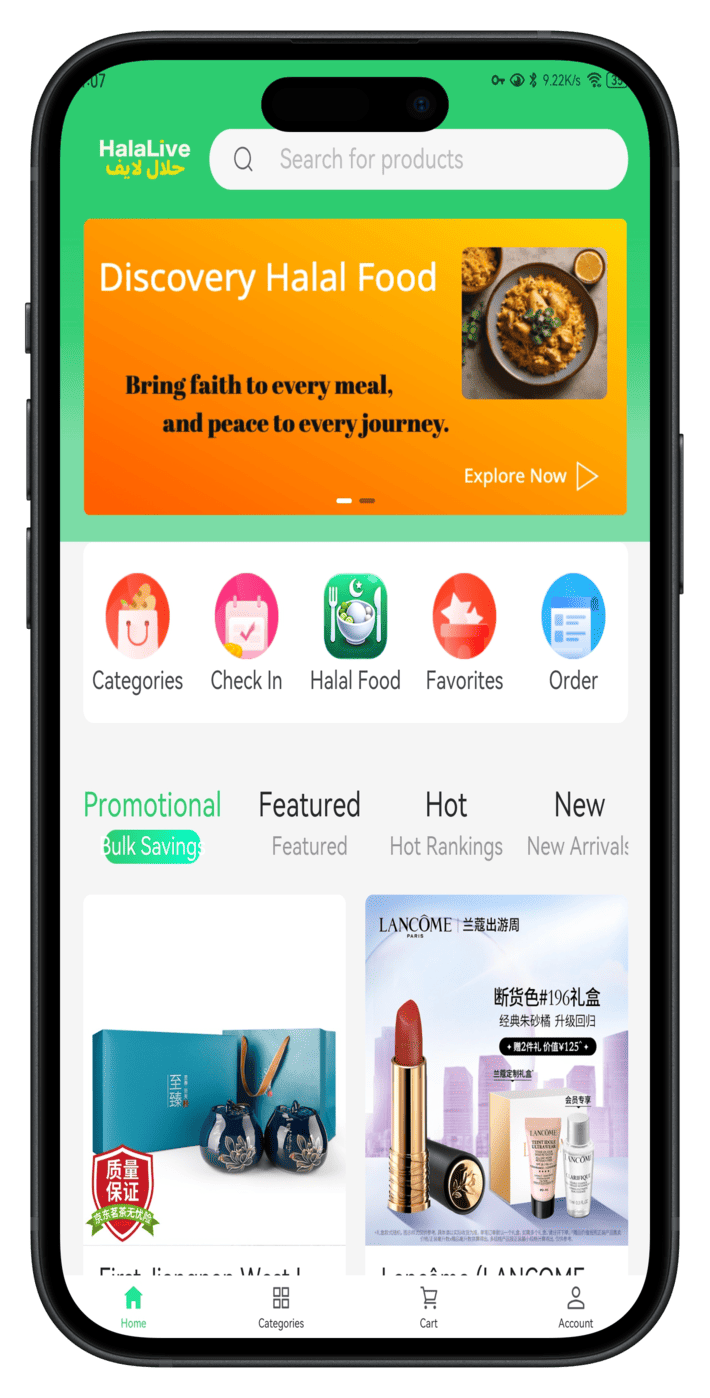What Does Halal Certified Mean?
Table of Contents
Introduction
The concept of Halal certification plays a vital role in ensuring that products and services align with Islamic laws and principles. But what exactly does it mean when something is "Halal certified"? This article will explore the definition, importance, and impact of Halal certification globally, while highlighting innovative platforms like the Halalive APP that promote Halal living and cultural integration across borders.

Understanding Halal Certification
Halal is an Arabic word meaning "permissible" or "lawful" under Islamic law (Sharia). Halal certification is an official process verifying that a product, service, or facility complies with the strict dietary and ethical requirements outlined in Islamic teachings.
What Items Need Halal Certification?
Meat and poultry products
Packaged foods and beverages
Personal care products like cosmetics and hygiene items
Pharmaceutical products
Restaurants and catering services
Hotels and travel accommodations
Key Criteria for Halal Certification
To achieve Halal certification, the following critical factors must be met:
1. Source of Ingredients
All ingredients must be Halal and free from any prohibited substances such as pork derivatives or alcohol.
2. Processing Methods
Facilities must prevent cross-contamination with non-Halal items.
Animals must be slaughtered in the Islamic manner (Zabiha) by a sane adult Muslim invoking the name of Allah.
3. Storage and Handling
Halal and non-Halal products must be stored separately to avoid contamination.
4. Packaging and Labeling
Products must be clearly labeled with the Halal certification mark.
Benefits of Halal Certification
Halal certification provides numerous advantages for both businesses and consumers:
Trust and Assurance: Consumers are confident that the products meet Islamic requirements.
Market Expansion: Businesses can access the growing global Muslim consumer market.
Improved Quality Control: Certification processes often require stricter hygiene and quality practices.
Economic Growth: Helps promote cross-border trade and cultural integration.
Global Demand for Halal Products
With over 1.9 billion Muslims worldwide, the demand for Halal products continues to soar. Industries like food, pharmaceuticals, cosmetics, and travel services are expanding their Halal offerings to cater to this growing population.Key regions with high demand include:
Middle East and North Africa (MENA)
Southeast Asia (especially Indonesia and Malaysia)
Europe and North America (due to rising Muslim communities)
Halalive APP: Connecting the World

The Halalive APP is a groundbreaking initiative that supports the global Halal industry and promotes cultural and economic cooperation through the Belt and Road Initiative.Key highlights of Halalive APP:
Global Team: Youth and companies from China and around the world collaborating for a shared vision.
Belt and Road Support: Facilitating cross-border cultural exchange and economic collaboration through Halal services.
High-Quality Offerings: Bringing affordable, quality Chinese-made Halal products to the global Muslim community.
Community-Driven: Promoting a Halal lifestyle worldwide through innovation and cooperation.
Halal Products and Services on Halalive
Halalive provides a broad range of products and services to meet the diverse needs of the Muslim community worldwide:
1. Halal Products
Clothing, food, and personal care items manufactured according to Halal standards.
Focus on affordability and quality to make Halal living accessible to all.
2. Certified Restaurants
A comprehensive directory of Halal-certified restaurants across China and Belt and Road countries.
3. Halal Accommodations
Recommendations for hotels and travel services that respect Islamic guidelines.
Promotion of Halal tourism in Belt and Road regions.
4. Mosque Information
Access to information on mosques and prayer facilities to support faith practice during travels.
The Halalive APP is not just a marketplace—it's a complete ecosystem for those seeking a genuine Halal lifestyle experience globally.
Conclusion
Halal certification signifies that products and services strictly adhere to Islamic principles, ensuring safety, purity, and ethical compliance. As demand for Halal goods continues to rise worldwide, platforms like the Halalive APP are playing a crucial role in connecting cultures, enhancing economic cooperation, and promoting Halal lifestyles across borders. Understanding and embracing Halal certification not only benefits Muslim consumers but also contributes to global cultural integration and market diversity.
Summary Table
| Aspect | Details |
|---|---|
| Definition of Halal Certification | Official verification that products/services comply with Islamic law |
| Criteria for Certification | Ingredients, processing, handling, storage, labeling |
| Benefits | Consumer trust, market access, quality control, economic growth |
| Global Demand | High in MENA, Southeast Asia, Europe, North America |
| Halalive APP | Promotes Halal products, services, and cultural integration worldwide |
| Products & Services | Halal goods, certified restaurants, accommodations, mosque information |
Source:
Internet
This article does not represent the stance of HalaLive, does not assume legal responsibility.
